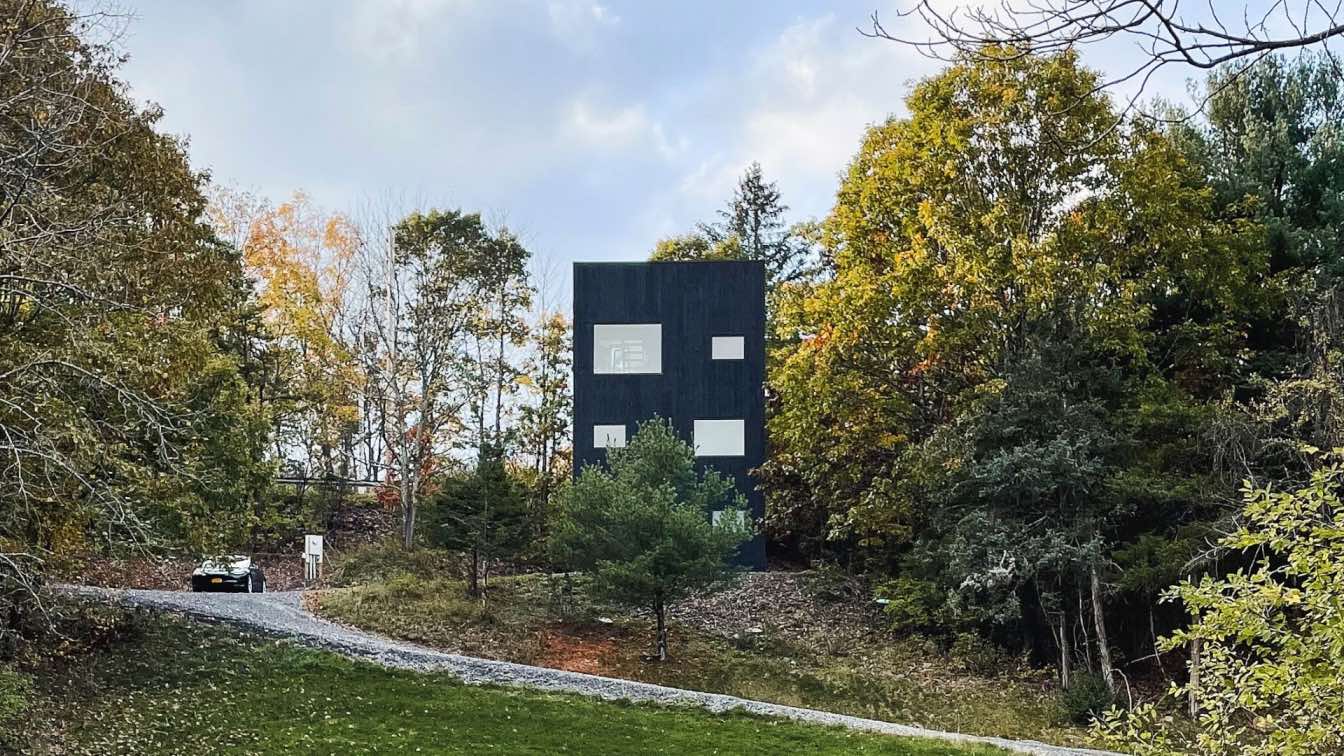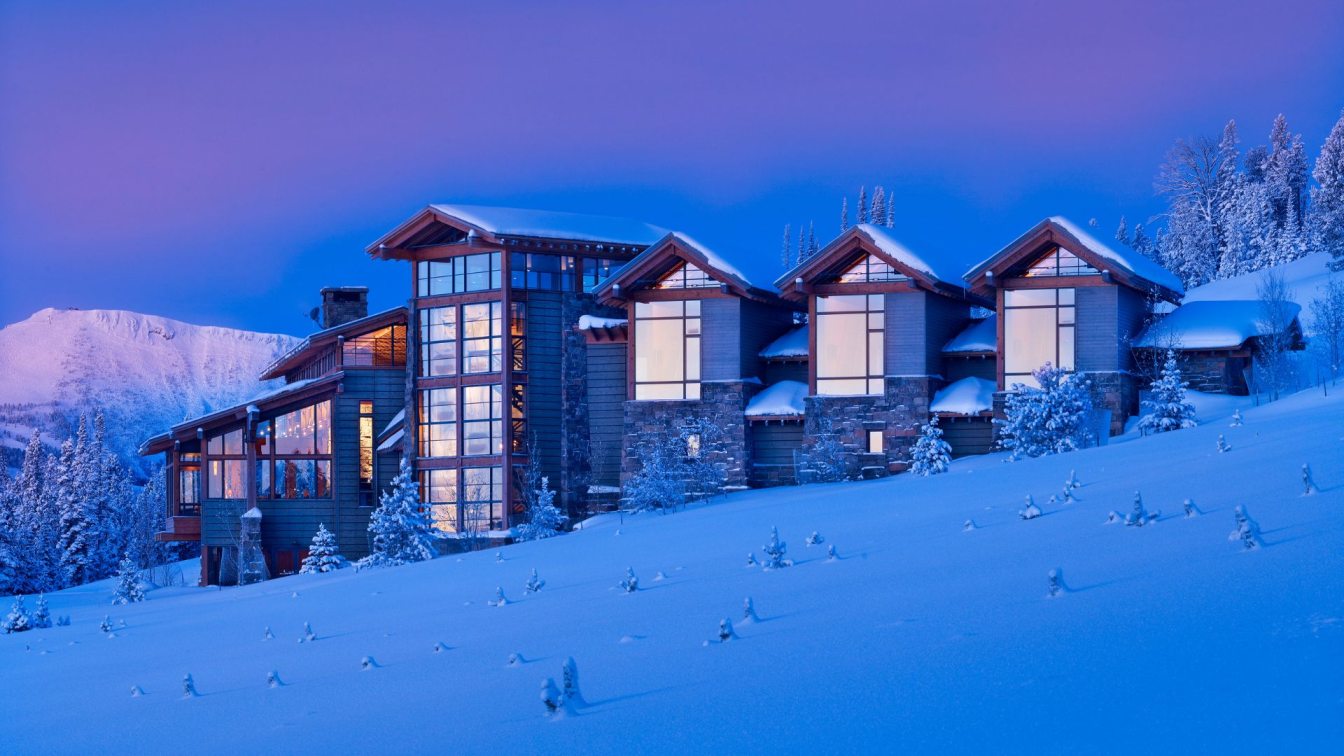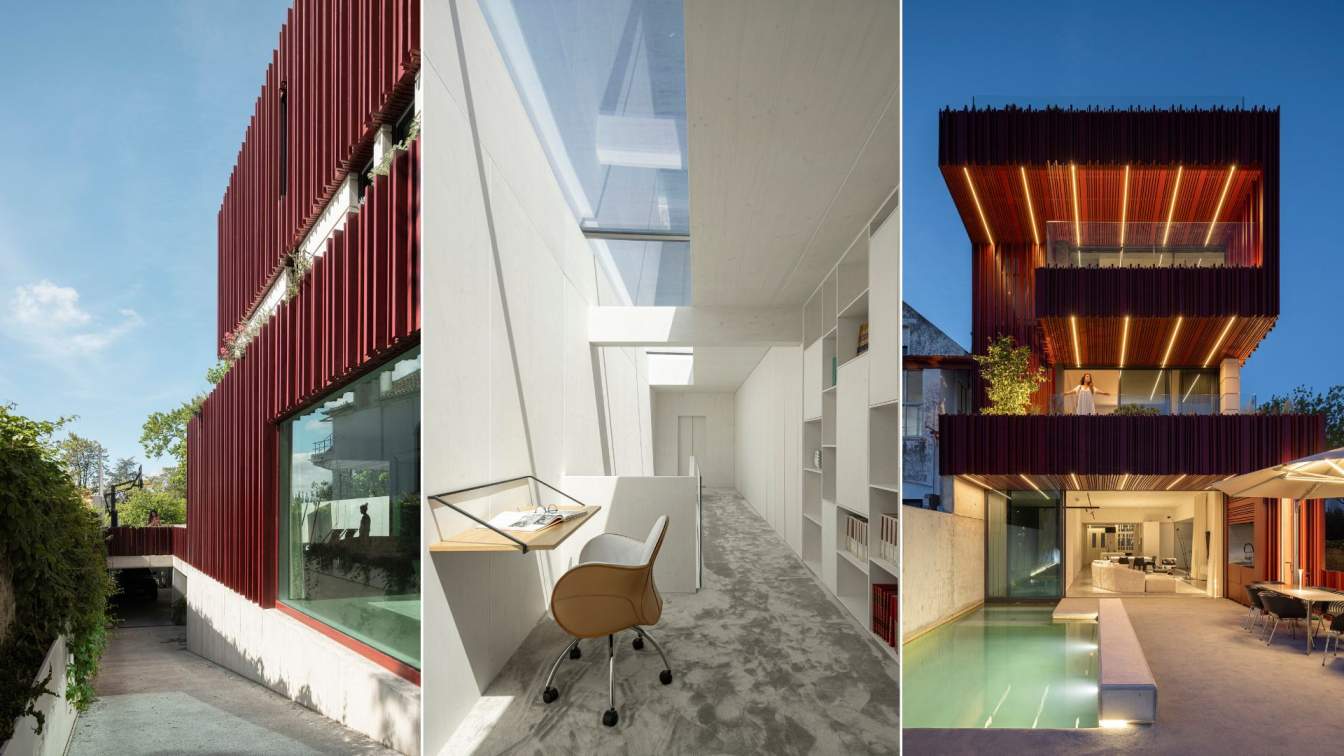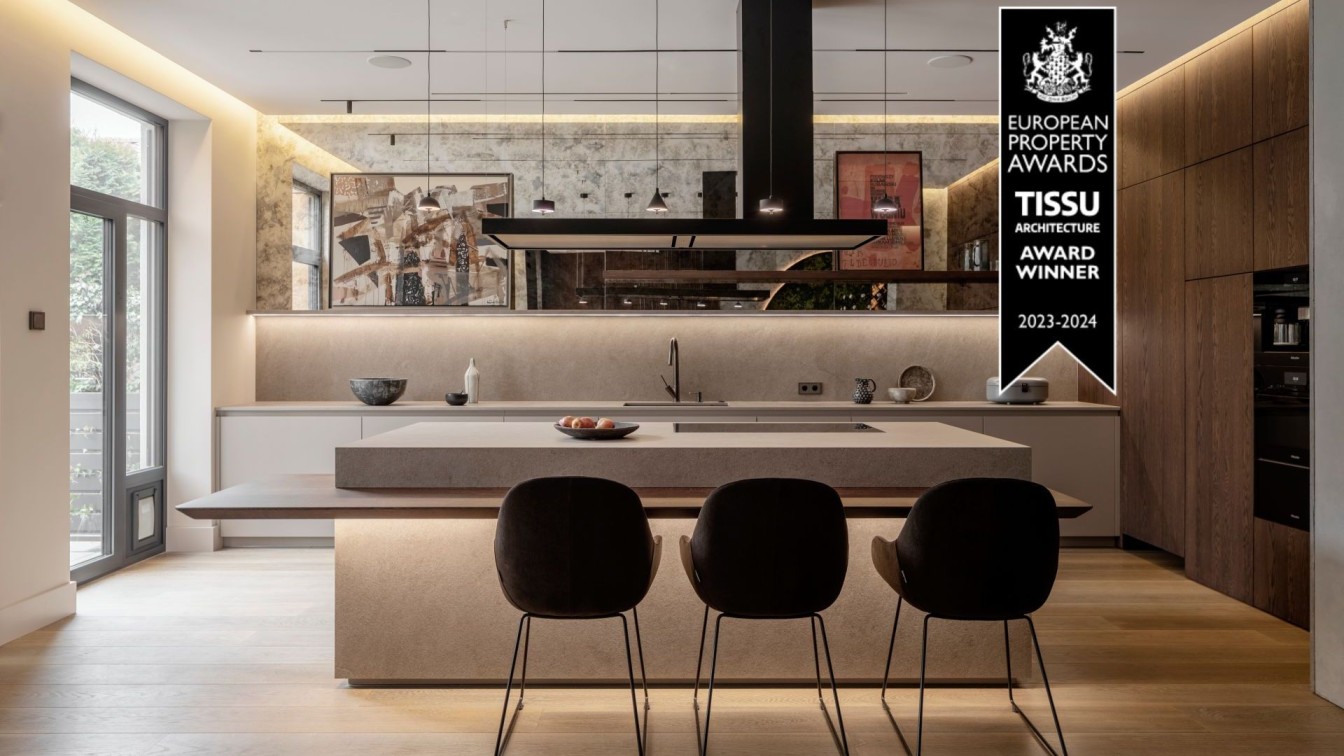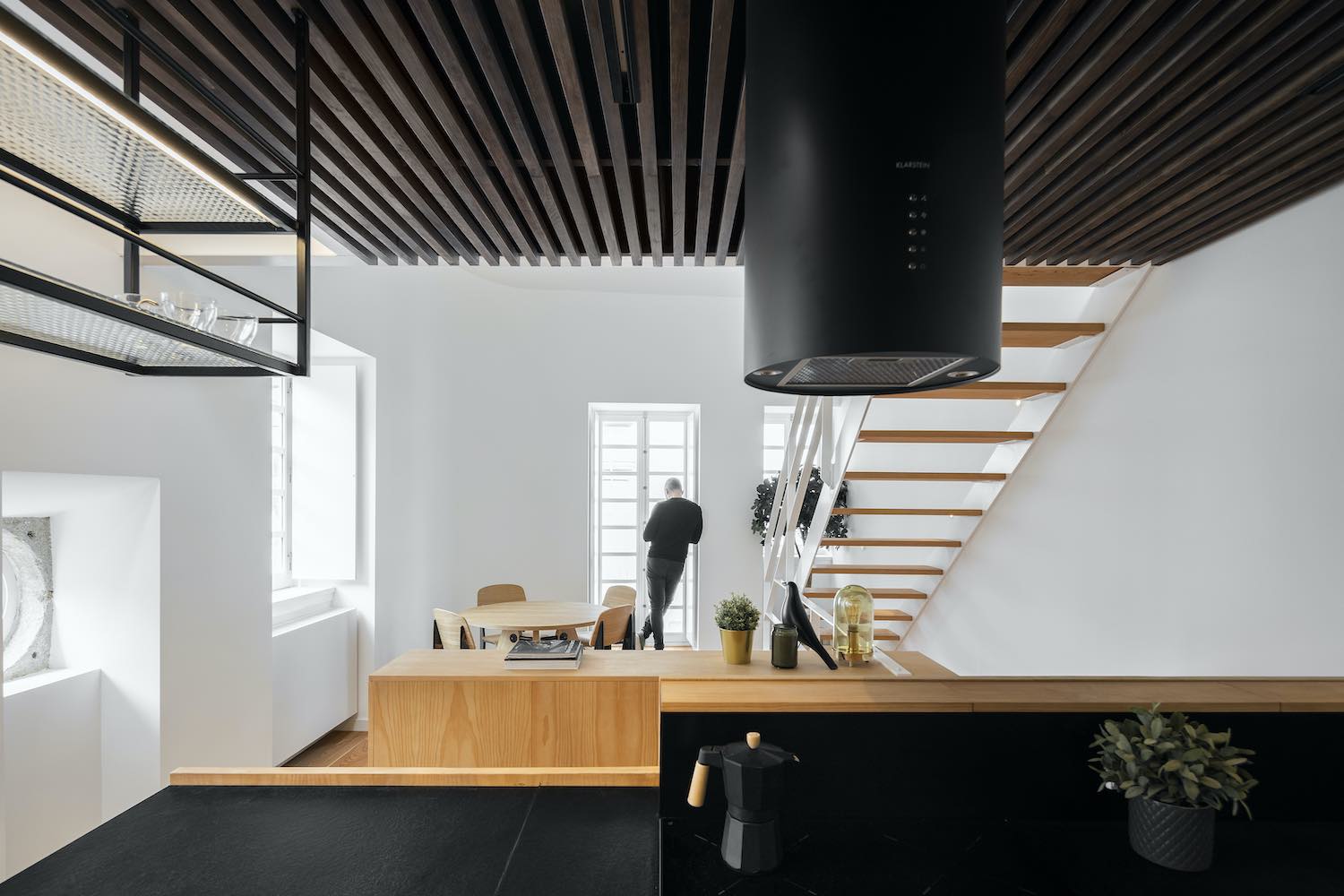Kimberly Peck Architect: The owner of this new home titles it a “modern watchtower”. Located in the Catskill Mountains the home’s design capitalizes on the mountain views. The client searched a number of years to find land with the objective of creating a unique property that would stand out among short term vacation rentals in the Hudson Valley. They came to us with the form of the house fully conceptualized: a 3 story extruded 20 ft x 20 ft square sited at the top of the small hill on the property.
The fenestration was also very important to the owner, the cuboid was to be punctuated randomly with windows of various size and shape that he positioned to best capitalize on specific views. The floors are connected by a stacked steel staircase that continues to the roof where one can access an occupiable deck via an operable skylight at the top of the stair. Directly below the roof deck contrary to a traditionally configured home with bedrooms on top, is an open floor where the kitchen, living and dining room enjoy the higher vantage point through the largest window in the house. Each of the bottom two floors consists of an en-suite bedroom and bath.
 image © Gregory Farrell
image © Gregory Farrell
The house was designed with energy efficiency in mind, utilizing sips panel construction at the exterior walls and roof to create a heavily insulated envelope. The ground floor is slab on grade concrete construction with radiant heat embedded in concrete which along with a mini split system and erv technology comprises the buildings heating and cooling system. The owner’s favorite room in the house is the master bath with its heated terrazzo tiled flooring and freestanding soaking tub situated so that one can take in the view as they relax.
What was the brief?
The client searched a number of years to find land with the objective of creating a unique property that would stand out among short term vacation rentals in the Hudson Valley.
 image © Gregory Farrell
image © Gregory Farrell
What building methods were used?
The house was designed with energy efficiency in mind, utilizing sips panel construction at the exterior walls and roof to create a heavily insulated envelope. The ground floor is slab on grade concrete construction with radiant heat embedded in concrete which along with a mini split system and erv technology comprises the buildings heating and cooling system.
What are the sustainability features?
The house was designed with energy efficiency in mind, utilizing sips panel construction at the exterior walls and roof to create a heavily insulated envelope. The ground floor is slab on grade concrete construction with radiant heat embedded in concrete which along with a mini split system and erv technology comprises the buildings heating and cooling system.
How is the project unique?
Directly below the roof deck contrary to a traditionally configured home with bedrooms on top, is an open floor where the kitchen, living and dining room enjoy the higher vantage point through the largest window in the house.
















About
Kimberly Peck Architect is a boutique architecture firm specializing in residential and hospitality projects. Projects range from new construction to historic brownstone renovations to large loft build-outs. They have a very strong emphasis on design and rigorous construction detailing. For them the dialog between client and architect is crucial to the architectural process. They start all projects by thoroughly discussing the clients goals and requirements to arrive at a mutual understanding of the program in relation to aesthetics, schedule and budget. They then work closely with their client’s interpreting their needs to create design based solutions that integrate seamlessly with the client’s lifestyle. Each project is a reflection of the individual client, creating a unique canvas for their life.

